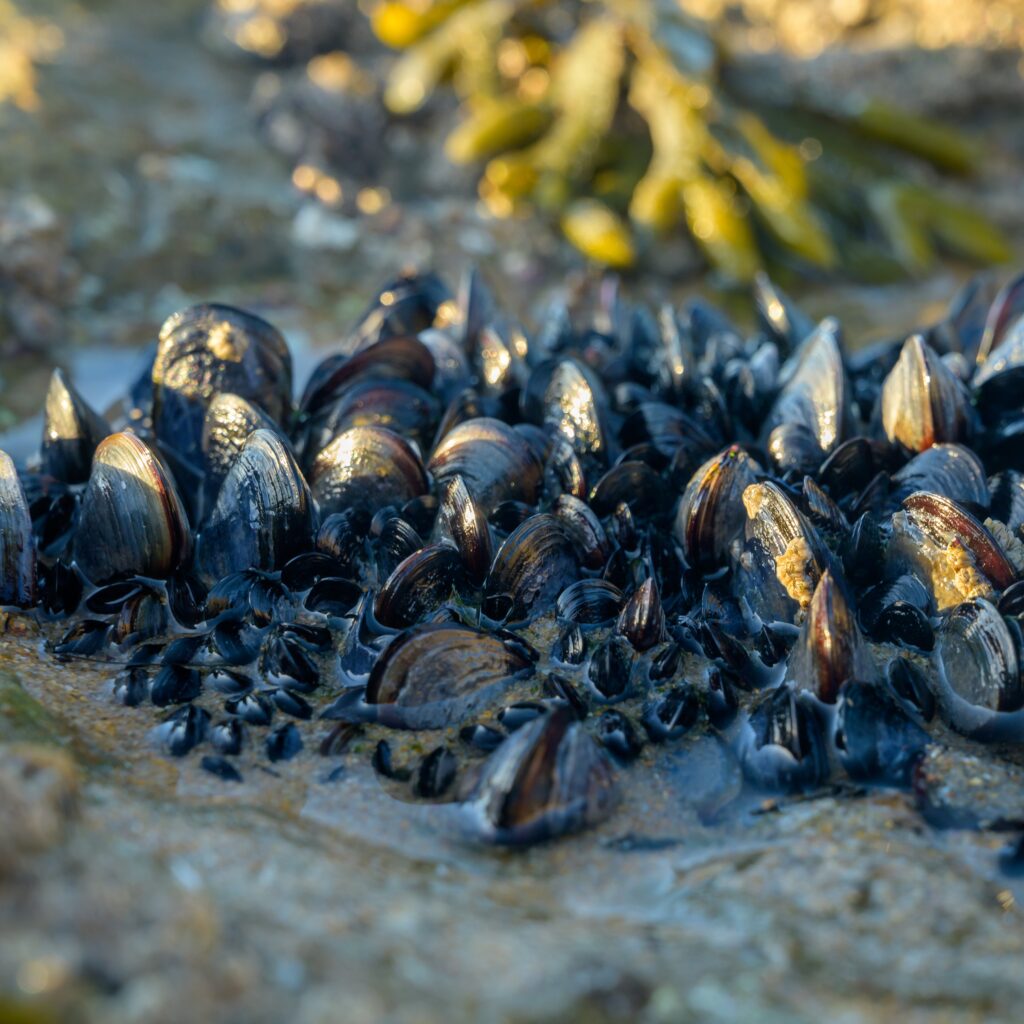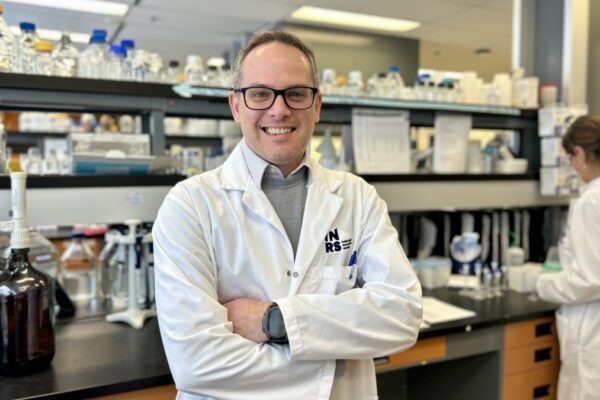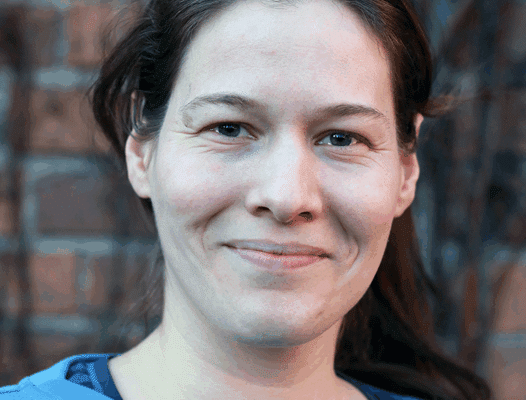- Research Grants
Three INRS teams receive financial support from Génome Québec and the FRQ to safeguard the planet’s health.

Professors Isabelle Lavoie, Philippe Constant, Yves St-Pierre, and Frédéric Veyrier of the Institut national de la recherche scientifique (INRS) are among the fifteen research teams to receive funding from Génome Québec and the Fonds de recherche du Québec – Nature et technologies (FRQNT). In all, this funding is worth nearly $3.6 million. This announcement comes following the third cycle of applications for the Genomics Integration Program – Agriculture and Biofood, Forestry and Environment.
The funded research projects will focus on the use of genomics to help industry and public organizations address biodiversity, animal health, water quality, and ecosystem health issues. They will also study the detection of pathogens, pests, and invasive species.
Assessing the quality of watercourses with algal DNA
The project led by Isabelle Lavoie (INRS’s Eau Terre Environnement Research Centre) and Stéphane Campeau (Université du Québec à Trois-Rivières), “Les diatomées pour le suivi de l’intégrité biologique des cours d’eau : preuve de concept pour une migration de l’approche traditionnelle par microscopie vers une approche de metabarcoding ” (Use of diatoms to follow the biological integrity of watercourses: proof of concept to move from traditional microscopy to metabarcoding), is carried out in partnership with the Ministère de l’Environnement, de la Lutte contre les changements climatiques, de la Faune et des Parcs

Diatoms—microscopic algae—are commonly used as bioindicators to assess the quality of watercourses. They are harvested by scraping the brown or green biofilm (a cluster of several microorganisms, including diatoms) from the surface of rocks. The number of sites monitored using the Eastern Canada Diatom Index (IDEC) continues to grow. However, the cost of microscopic analyses and the time required to obtain results are holding back the rollout of this approach for routine monitoring throughout Quebec.
This project therefore aims to determine the relevance and feasibility of using diatom DNA as an alternative or complement to microscopic analyses in order to reduce associated costs, analysis times, and the need for taxonomic expertise. This would improve routine biomonitoring and make the IDEC tool accessible to a greater number of organizations, allowing Quebec to remain a leader in biomonitoring in Canada.
Developing innovative biosolutions for agriculture
The project led by Philippe Constant (INRS’s Armand-Frappier Santé Biotechnologie Research Centre), in collaboration with Ulysse Biotech, is called “Établir un modèle IA de prédiction de biocompatibilité bactérie-consortium bactérien basé sur les profils génomiques en conditions de biocontrôle dans le pathosystème Radis – Streptomyces scabies ” (Establishing an AI model to predict bacterial biocompatibility based on genomic profiles under biocontrol conditions in the Streptomyces scabies-radish pathosystem).

The use of biosolutions (biofertilizers, biocontrols, biostimulants, and adjuvants) offers promising avenues for developing sustainable, competitive agriculture that is resilient to climate change. In contrast to the broad spectrum of use of conventional pesticides, these biotechnologies are more context-specific, as they adapt to the nature of the host plant, the soil microbiota, or the type of pathogen. The major challenge with this technology is to identify the specific features of each biosolution formulated, to ensure the best results for different types of crops.
The aim of this project is to identify the genomic characteristics that will make it possible to predict biocompatibility between bacteria, and thus develop more effective biological agent formulations and application recommendations (e.g., doses and frequencies) for precision agriculture.
Monitoring the health of marine ecosystems using… mussels!
Entitled “MYTILUS: A multi-omics platform for monitoring the health of coastal marine ecosystems,” the research project led by Professors Yves St-Pierre and Frédéric Veyrier (INRS’s Armand-Frappier Santé Biotechnologie Research Centre) will be carried out in collaboration with Parks Canada.

The concepte ofe liquid biopsy, developed in the biomedical field, is based on the genetic analysis of DNA circulating in the blood. By collecting the DNA that accumulates in mussels—molluscs that filter dozens of litres of water every day—and analyzing the genetic information contained in these samples, the researchers hope to obtain valuable data on the health of marine ecosystems.
The team will also be able to detect the presence of pathogens and assess the biodiversity of the ecosystem as well as mussels’ stress levels in response to their environment. This non-invasive approach offers an effective means of monitoring environmental changes, identifying human impacts, and taking action to preserve and restore these precious marine habitats.
About the Genomics Integration Program – Agriculture and Biofood, Forestry and Environment
This program provides funding for projects ranging from $100,000 to $300,000, covering half the cost of partnerships between academic researchers and end-user partners who can implement and commercialize the findings.
Funds must be used to establish a proof of concept for the development and deployment of a genomics-based tool, product, or process (or one that enables its deployment), as well as to promote the transfer of project results towards user implementation or commercialization, or to secure subsequent funding.



